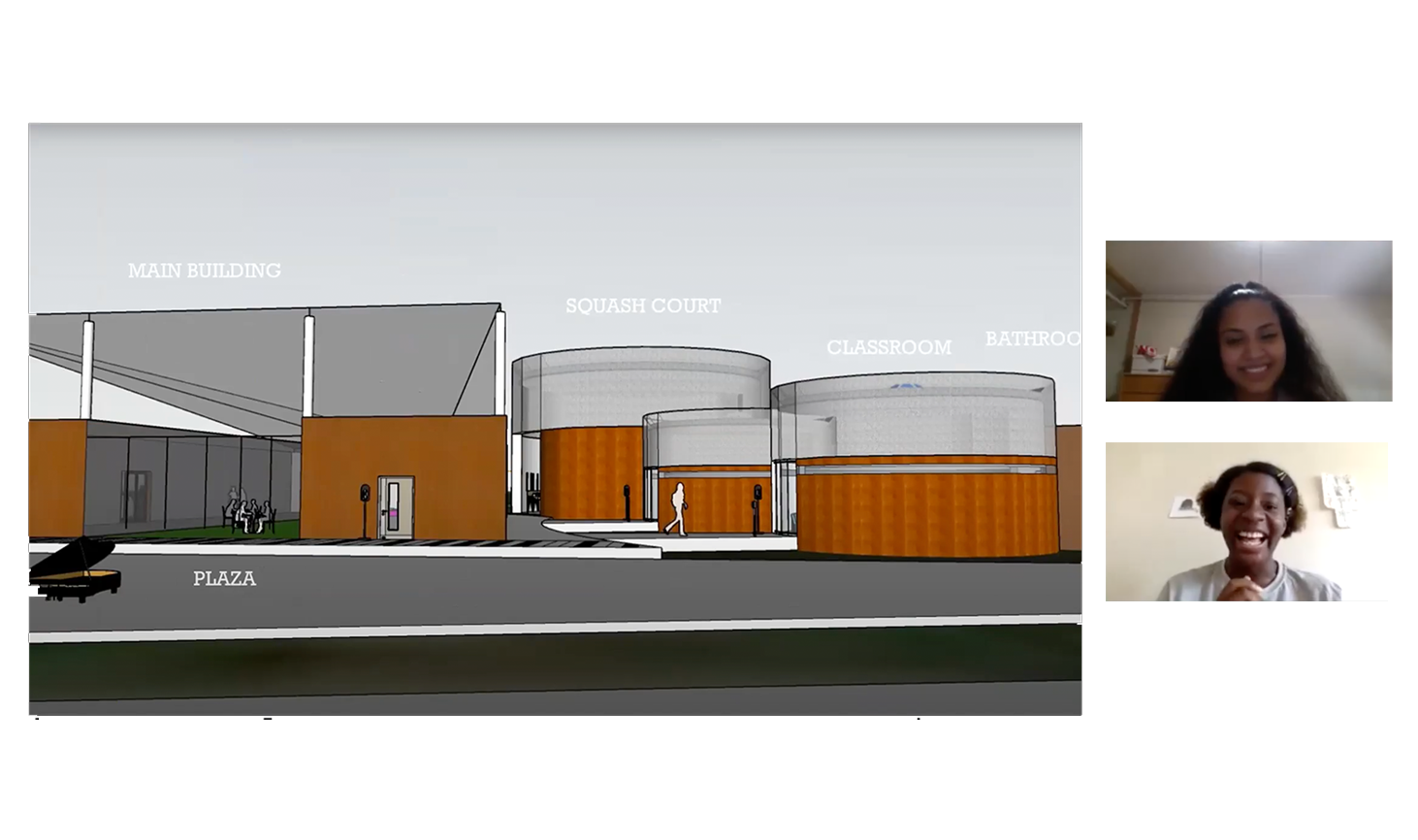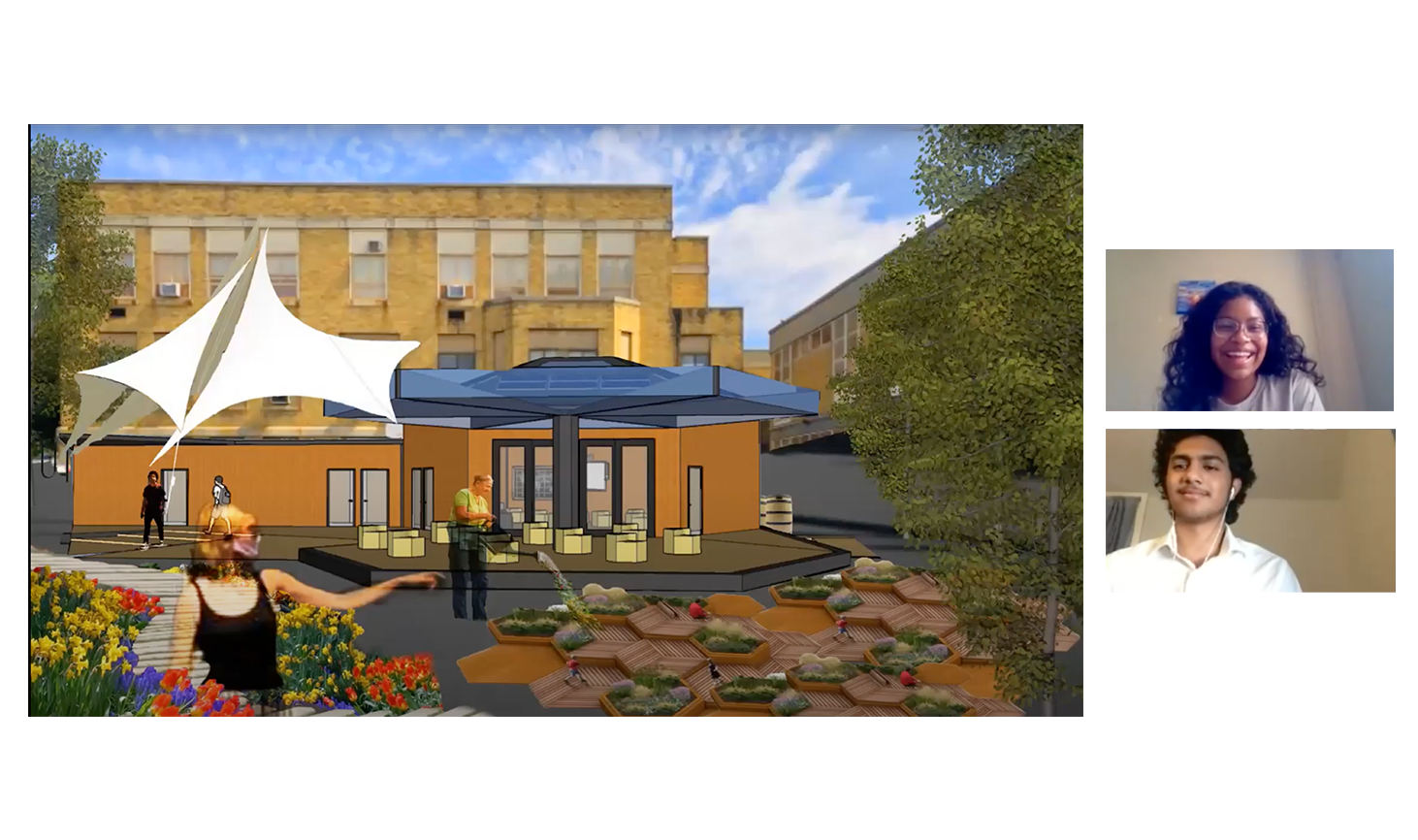This summer, the Sasaki Foundation held the third annual Summer Exploratory Experience in Design (SEED) program, a six-week paid internship for students from Greater Boston high schools that is structured holistically around introducing young students to the world of design. The program is an intensive deep dive into collaborative project work, with Sasaki designers leading workshops and lessons with students each week. Due to COVID-19, the program took place virtually, incorporating a few in-person outdoor site visits using social distancing.
In response to national conversations surrounding returning to school during a pandemic, the students were tasked with designing a mobile classroom. Following guidelines set by the Massachusetts Department of Elementary and Secondary Education, students worked in teams to create temporary classrooms in their neighborhoods of Somerville and Mattapan that would be safe for learning while social distancing.
The students worked alongside Sasaki designers, who served as mentors throughout the program by sharing their expertise in their practice. Each week, the mentors led the students through workshops that introduced them to various design concepts—from urban planning, to architecture, to storytelling—and applied them to their mobile classroom designs. Teaching assistants Shemar Stewart and Tess McCann also helped to guide the program. The Foundation would like to thank the Sasaki mentors for their guidance and dedication: Meredith McCarthy, AIA; Madelyn Albright; Diane Athaide; Chanwoo Kim, LEED AP ND; Elaine Limmer; Breeze Outlaw, ASLA; Emily Parris, LEED AP; Ponnapa Prakkamakul, ASLA, PLA, LEED AP ND, SITES AP; Robert Sugar; and Lanmuzhi Yang, LEED AP ND. A testament to our fantastic mentors, SEED student Sabiha commented, “I’m very appreciative of this experience even if it was virtual, this exceeded all my expectations of what virtual learning can be.”
Students presented their mobile classrooms virtually to individuals from Sasaki, American Student Assistance (ASA), and Boston-area civic offices. The mobile classroom designs went above and beyond; from their overall designs to the functionality and aesthetics of their classrooms, students fully grasped the design challenge presented to them this summer. Ben Ewen-Campen, Somerville’s Ward 3 City Councilor and one of the special guests joining the presentations, commented, “I’m totally blown away by this” and went on to say the students’ presentations would have been successful at any of the numerous community meetings in which he’s participated.


The SEED program is in partnership with ASA, who for over 60 years has focused on helping students pursue a college degree by partnering with hundreds of colleges and universities to help students and alumni manage their student loans and maintain financial wellness. With ASA’s mission of helping students know themselves, know their options, and make informed decisions to achieve their education and career goals, the Sasaki Foundation’s partnership with ASA was instrumental in making the impact we desired. “This is one of the best decisions I’ve ever made in my entire life because I know now I really want to go into design,” SEED student Joydanze said after the presentations. Nallely, another student, added, “I really appreciate this program. It helped me build up my confidence.”
The relationships that students have built with the teaching assistants and Sasaki mentors will last well beyond the end of the program. Students can continue to turn to mentors as a resource when navigating transitions in their education and career. As Sasaki design mentor Chanwoo Kim put it, “You’re officially now one of us—please stay in touch and keep us updated on your future career.”
